| |||||||||
| Decades: | |||||||||
|---|---|---|---|---|---|---|---|---|---|
| See also: | |||||||||
The following lists events that happened during 1806 in South Africa .
| |||||||||
| Decades: | |||||||||
|---|---|---|---|---|---|---|---|---|---|
| See also: | |||||||||
The following lists events that happened during 1806 in South Africa .
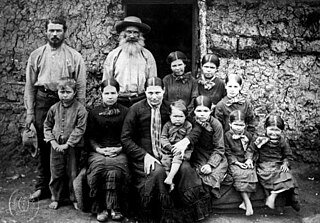
Boers are the descendants of the proto Afrikaans-speaking Free Burghers of the eastern Cape frontier in Southern Africa during the 17th, 18th, and 19th centuries. From 1652 to 1795, the Dutch East India Company controlled the Dutch Cape Colony, which the United Kingdom incorporated into the British Empire in 1806. The name of the group is derived from Trekboer then later "boer", which means "farmer" in Dutch and Afrikaans.

The Cape Colony, also known as the Cape of Good Hope, was a British colony in present-day South Africa named after the Cape of Good Hope. It existed from 1795 to 1802, and again from 1806 to 1910, when it united with three other colonies to form the Union of South Africa, then became the Cape Province, which existed even after 1961, when South Africa had become a republic, albeit, temporarily outside the Commonwealth of Nations (1961–94).

The Union of South Africa was the historical predecessor to the present-day Republic of South Africa. It came into existence on 31 May 1910 with the unification of the Cape, Natal, Transvaal, and Orange River colonies. It included the territories that were formerly part of the South African Republic and the Orange Free State.

The Orange Free State was an independent Boer-ruled sovereign republic under British suzerainty in Southern Africa during the second half of the 19th century, which ceased to exist after it was defeated and surrendered to the British Empire at the end of the Second Boer War in 1902. It is one of the three historical precursors to the present-day Free State province.

The Great Trek was a northward migration of Dutch-speaking settlers who travelled by wagon trains from the Cape Colony into the interior of modern South Africa from 1836 onwards, seeking to live beyond the Cape's British colonial administration. The Great Trek resulted from the culmination of tensions between rural descendants of the Cape's original European settlers, known collectively as Boers, and the British. It was also reflective of an increasingly common trend among individual Boer communities to pursue an isolationist and semi-nomadic lifestyle away from the developing administrative complexities in Cape Town. Boers who took part in the Great Trek identified themselves as voortrekkers, meaning "pioneers" or "pathfinders" in Dutch and Afrikaans.

Coloureds are multiracial people in South Africa, Namibia and to a lesser extent, Zimbabwe and Zambia. Their ancestry descends from the interracial marriages/interracial unions that occurred between Europeans, Africans and Asians. Interracial mixing in South Africa began in the Dutch Cape Colony in the 17th century when the Dutch men mixed with Khoi Khoi women, Bantu women and Asian female slaves and mixed race children were conceived. Eventually, interracial mixing occurred throughout South Africa and the rest of Southern Africa with various other European nationals such as the Portuguese, British, Germans, and Irish, who mixed with other African tribes which contributed to the growing number of mixed-race people, who would later be officially classified as Coloured by the apartheid government.

Sir Henry Bartle Edward Frere, 1st Baronet, was a British colonial administrator. He had a successful career in India, rising to become Governor of Bombay (1862–1867). However, as High Commissioner for Southern Africa (1877–1880), he implemented a set of policies which attempted to impose a British confederation on the region and which led to the overthrow of the Cape Colony's first elected government in 1878 and to a string of regional wars, culminating in the invasion of Zululand (1879) and the First Boer War (1880–1881). The British Prime Minister, Gladstone, recalled Frere to London to face charges of misconduct; Whitehall officially censured Frere for acting recklessly.

The Bechuanaland Protectorate was a protectorate established on 31 March 1885 in Southern Africa by the United Kingdom. It became the Republic of Botswana on 30 September 1966.

Griqualand West is an area of central South Africa with an area of 40,000 km2 that now forms part of the Northern Cape Province. It was inhabited by the Griqua people – a semi-nomadic, Afrikaans-speaking nation of mixed-race origin, who established several states outside the expanding frontier of the Cape Colony. It was also ancestral home to the Tswana and Khoisan peoples.
The following lists events that happened during 1803 in South Africa.
The following lists events that happened during 1809 in South Africa.

Sir Charles Henry Darling was a British colonial governor.
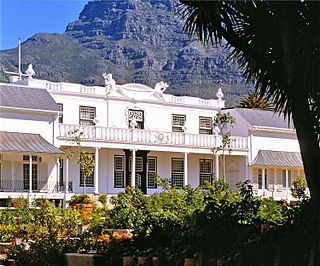
De Tuynhuys is the office of the president of South Africa, located in Cape Town.

The South Africa Act 1909 was an act of the Parliament of the United Kingdom that created the Union of South Africa out of the former Cape, Natal, Orange River, and Transvaal colonies. The Act also allowed for potential admission of Rhodesia into the Union, a proposal rejected by Rhodesian colonists in a 1922 referendum. The draft proposal was supported by the four colonial parliaments, but was opposed by Cape Colony premier W. P. Schreiner, who raised concerns that it would strip rights from non-white South Africans.
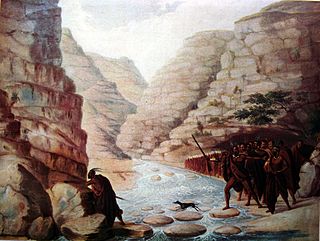
The Xhosa Wars were a series of nine wars between the Xhosa Kingdom and the British Empire as well as Trekboers in what is now the Eastern Cape in South Africa. These events were the longest-running military resistance against European colonialism in Africa.

Sir Walter Francis Hely-Hutchinson was an Anglo-Irish diplomat and colonial administrator.
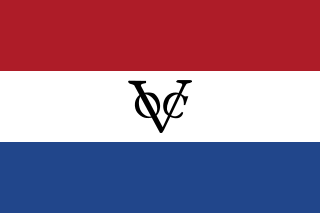
The Dutch Cape Colony was a Dutch United East India Company (VOC) colony in Southern Africa, centered on the Cape of Good Hope, from where it derived its name. The original colony and the successive states that the colony was incorporated into occupied much of modern South Africa. Between 1652 and 1691, it was a Commandment, and between 1691 and 1795, a Governorate of the VOC. Jan van Riebeeck established the colony as a re-supply and layover port for vessels of the VOC trading with Asia. The Cape came under VOC rule from 1652 to 1795 and from 1803 to 1806 was ruled by the Batavian Republic. Much to the dismay of the shareholders of the VOC, who focused primarily on making profits from the Asian trade, the colony rapidly expanded into a settler colony in the years after its founding.
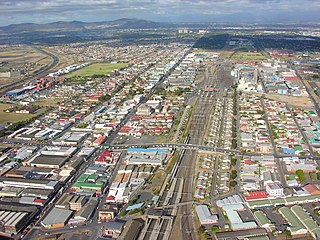
Maitland is a suburb of Cape Town, South Africa.
The New Year Honours 1911 were appointments by King George V to various orders and honours to reward and highlight good works by members of the British Empire. They were announced on 3 January 1911.
Albert van Breugel was the acting commander of the Cape of Good Hope between April 1672 and 2 October 1672. He succeeded Governor Pieter Hackius after his death on 30 November 1671. Between Hackius's death and Breugel's appointment, the administration in the Cape was overseen by the Political Council.